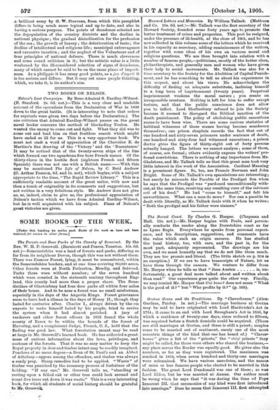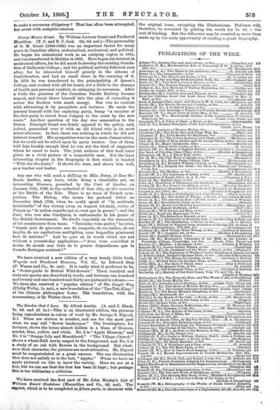Gardner, Paisley. is. net.)—The marriage business at Gretna may be
said to have originated with Lord Hardwicke's Act in 1754; it came to an end with Lord Brougham's Act in 1856, by which a residence of twenty-one days, since reduced to fifteen, was required before a Scotch domicile could be acquired. (There are still marriages at Gretna, and there is still a priest; couples come to be married out of sentiment, surely one of the most eccentric things of the kind that one has heard of.) " Clever- house " gives a list of the "priests," the "chief priests" they might be called, for there were others who shared the business,— any place across the Border was equally good. He gives also the numbers, as far as they were registered. The maximum waa reached in 1854, when seven hundred and thirty-one marriages: were solemnised. We have various anecdotes, and the names of more or less famous people who elected to be married in this fashion. The great Lord Dundonald was one of these ; so was Lord Eldon, but he was married at Annan. Our author must be wrong when he says that " it was during the time of Pops Innocent III. that ceremonies of any kind were first introduced into marriage." Does he mean that Innocent III, first attempted to make a ceremony obligatory P That has often been attempted, but never with complete success.















































 Previous page
Previous page